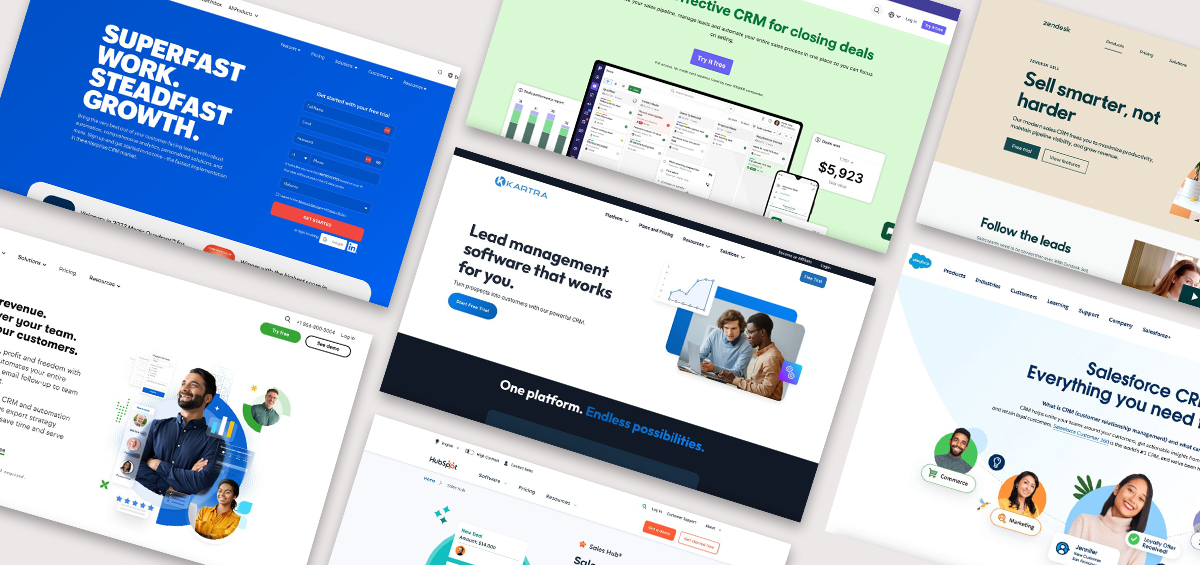Building a personal brand is one of the most effective ways to open up opportunities for yourself in terms of both impact and income. Here at Kartra, we’ve seen how entrepreneurs have leveraged their personal brands to build the lifestyle they want, share their passion with others, and diversify their revenue streams.
If you’ve decided it’s time to invest in your own brand instead of someone else’s — here’s our inside scoop on how people build successful personal brands.
#1. Be unmistakable
You might think that you have to pick and choose aspects of your personality and experiences to “market” to the world. But actually, niching your personal brand is about finding a specific purpose — a message that you want to share with the world around you.
Whether you’re raising awareness for a cause, selling a product or service, or proving your expertise in a particular field, an overarching message is what makes the difference between an online following and a true personal brand.
And remember, you can put the whole weight of your personality into your brand’s message — your sense of humor, your hobbies, your experiences, your likes and dislikes.
The message you’re sharing is what brings it all together.
And like any brand, personal brands succeed most when that message is unmistakably clear! One of the most important initial steps you can take in honing your message is to craft a personal brand statement.
How to write a personal brand statement
Whether you call it an elevator pitch, a value proposition, or a personal brand statement — this pivotal sentence or two encapsulates who you are, what you do, and for whom.
Don’t worry about getting it perfect the first time — chances are, you will go through multiple iterations over the years. Here’s a template to get you started, but feel free to make it your own!
Personal brand statement template
[Full Name]: [Title]
I help [target audience] [goal-based verb statement] by [verb statement]
Examples:
- I help diabetics gain control over their blood sugar through nutrition coaching and programs.
- I demystify complex financial topics for young adults who want to make smart money decisions.
Your brand statement should be front and center anywhere you promote yourself. There might need to be slight variations of your statement depending on the context — such as a website homepage vs. a social media profile — but be as consistent as you can. You want your brand statement to be recognizable and memorable.
Need a professional website for your personal brand? Check out our guide on how to build a personal website (examples included)
#2. Stay focused on your path
Self-branding has become a buzzword in the digital age. With so many voices vying for attention on social media and various online platforms, it’s tempting to imitate what seems to work for others. But here’s the thing—the most successful personal brands aren’t copycats.
Your personal brand should be as unique as you are. It’s not about creating a perfect online persona, but about showcasing your genuine self. This authenticity is what will help you build trust with your audience.
As you develop your brand, ask yourself:
- What’s the core message I want to share?
- What makes my perspective or skills unique?
- How can I best serve my audience?
Your brand message should relate directly to your goals. Are you aiming to launch an online course, become a thought leader in your industry, or build a community around a cause you care about? Whatever you want to do, don’t get distracted from your end goals.
Remember, you can’t be everywhere or do everything. It’s not about being active on every social media platform or jumping on every trend. Focus on the channels and activities that align with your message and resonate with your audience.
#3. Engage your audience
It might feel strange to think about your personal brand’s audience — after all, you’re happy to connect with anyone who wants to! But all messages have an intended audience, and your branding strategy needs to be tailored to the people who will experience your brand.
Think of building your personal brand like writing a resume or showing up for a job interview. You need to be yourself, but you also need to consider who you’re talking to — your audience shapes how you communicate. After all, the whole concept of a personal “brand” is about how others see you!
Challenge yourself to go beyond demographics (e.g. “young professionals” or “new parents”) and consider the underlying motivators, pain points, and experiences that characterize your audience.
Here are some questions to ask as you identify your target audience and curate a brand voice that will speak to them:
- Who do I enjoy working with? Why?
- Who is already paying attention to my work/message/influence? Why?
- Who has the most to gain from my area of expertise? Do they have the time/money/motivation to engage with my brand?
- What shared core values are most important to me?
- What are my audience’s goals? What challenges do they face in achieving those goals?
Your brand’s message will have a much bigger impact when your audience feels seen and understood.
#4. Create valuable content
Some personal brands are inherently built on content creation — think food bloggers or travel influencers. Others have seemingly little to do with it — like music instructors or business consultants trying to stand out in their industries.
Regardless of the niche, the people with successful personal brands are successful content creators.
Sharing valuable content is how you…
- build brand awareness
- back up your message
- make meaningful connections on social networks
Personal branding is a give-and-take. If you want people to notice your value, keep up with your journey, maybe even give you testimonials one day — you have to give them something that benefits their lives!
And you don’t have to be a marketing professional or graphic designer to create valuable and engaging content.
Whether you write value-packed posts on your LinkedIn profile, host a weekly podcast with industry thought leaders, or send a newsletter via email— content creation is about translating what you have to offer into something immediately beneficial to your audience.
And remember the first secret we talked about — strong personal brands don’t follow the crowd. Invest in whichever content format best complements your message, your personality, and your audience.
#5. Stay consistent
But won’t people get tired of hearing the same thing?
It’s a common misconception that you have to mix up what you say for people to keep listening. Of course it’s important to be creative with your content, keep people involved, and adapt to their needs. But that’s not what we’re talking about.
Spend some time observing people with personal brands that you follow. They’re complex people — with many different personality traits, interests, and skills. They might even discuss a wide variety of topics. But chances are, you follow them because they’re saying or doing something specific, and they always return to that central theme. It’s what made them resonate with you in the first place, and it’s what keeps you interested in what they have to say!
If you want to build brand equity and be known as an expert in a specific topic, a consistent brand message and brand voice is absolutely necessary.
People are surrounded by individuals and companies vying for their attention. We encounter countless messages every day. The only way your message is going to stand out — and sink in — is if you’re unashamedly consistent.
The sky’s the limit in terms of creativity — innovate new products, offer new services, create new types of content, come at your main point from another angle — but stay true to who you are and the message you want to share. Your followers will thank you for it!
#6. Focus your time where it matters most
Developing a strong personal brand is an ongoing pursuit. The people who succeed don’t get caught up in perfectionism or fear of failure! They stay focused on the big picture and use their time efficiently.
Start simple, consistently showing up for your audience. Pay attention to what moves your brand forward and focus your efforts on those things — whether a particular social media channel, type of content, or digital marketing strategy.
Create time in your schedule to focus on building your brand by taking advantage of automation.
With all-in-one marketing software like Kartra, you can set up automated email sequences, tag leads as you build your email list, and even create sales funnels that nurture potential customers toward a purchase decision.
There’s so much you can do with the right focus and the right tools!


